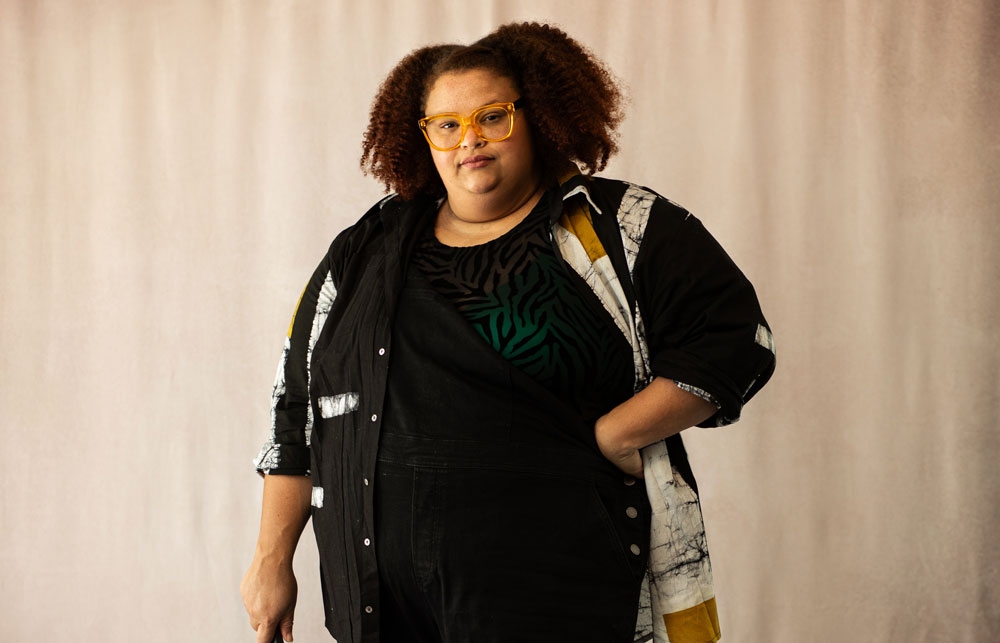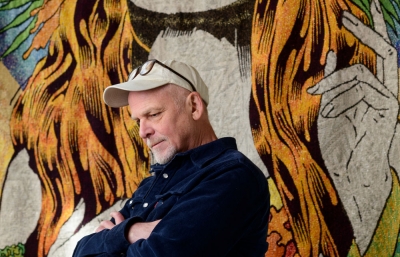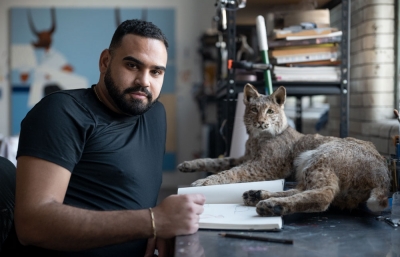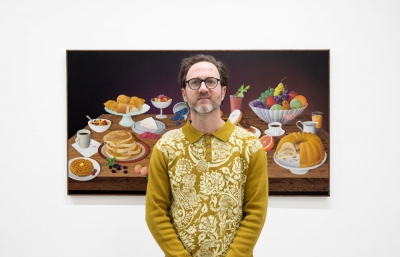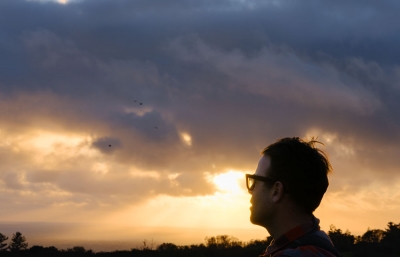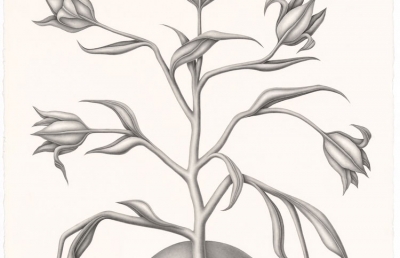DG: Looking back, how do you feel about that language of being referred to as aliens? Has that ever been kind of a problem for you?
No, because you have to meet my dad, who a lot of people in the art world are starting to meet. He's goofy. He's goofy like I am. And to us, aliens are the best thing ever. We're really into Star Trek. Most of the stories he told me I learned in college were from 1980s sci-fi movie plots because other students had them on while we were working. I was like, "Wait a minute!" And they're like, "Yeah, this movie's been around." Our favorite movie is Enemy Mine. Have either of you seen that? Enemy Mine, it's a very underrated ’80s sci-fi movie about humans discovering and colonizing space and then running into another alien race that's kind of doing that too. But because they can't communicate, they start a war. The movie centers around one of the soldiers crashing on this planet with another alien soldier and they're forced to live there for many years and they fall in love.
It has a lot of commentary on gender because you don't really know the gender of the alien, it fluctuates throughout the movie. It's a brilliant movie. But growing up, to me, aliens were always something to aspire to because, in a lot of our fiction about aliens, they're always better than us in some way. They come down to us and they're coming to either destroy us because we're not worthy or they're coming to take over because they need something we have that isn't as great as what they have, but is a key ingredient to what they need. And so that has been something I've thought about.
But also the word alien is used as a combative term against people who cross borders and try to decolonize the word alien and reclaim it. There's nothing wrong with being an alien or attempting assimilation. These people aren't aliens, they're human beings. And I'm trying to humanize that word as well. And also, it's coming from Blerd culture. In Blerd culture, nerd culture, aliens really aren't seen as being negative but are seen as something that we obsess over, that we cosplay, and that we're interested in.
EP: I was thinking this morning that for your students, it must be so helpful and inspiring to have a professor who is not only becoming recognized in the fine art world but also someone who has such deeply rich and fleshed-out ideas of their practice.
Yeah, success is the best revenge! So I need to be transparent here and say that the reason why I've been so aggressive with my career is because when I got the teaching gig, a lot of people in my life were like, "You're not going to stop making art." I lost friends over this because they were like, "You're not going to make art anymore. People teach, they don't do.” And I was like, "What do you mean?" I can't do art on my own without a steady income and I have a disability, I need insurance, I'm being practical. And I'm so grateful I went that route because there's been some really shady art world things that if I didn't have a job to say, "No, I'm good, thank you," I would've lost art. The career side wouldn't have done as well, and I'm grateful for that. But at the same time, I really like to succeed to prove people wrong and that's the best revenge.
EP: Do you find that as you're around people who are thirsty for knowledge it keeps you in a learned sort of atmosphere and informs your work?
Absolutely. And after taking a year off from teaching, I learned a really big lesson, that I need to teach to keep the balance. There are things in the art world, putting myself into it a hundred percent where I’m like, “Oh my gosh, I feel like I'm getting stupider.” They're simple concepts that my students get, like respecting my boundaries because I have a syllabus, emailing me during work time only, and responding to my emails in a professional way because they want to impress the professor. There's academic and intellectual stamina.







